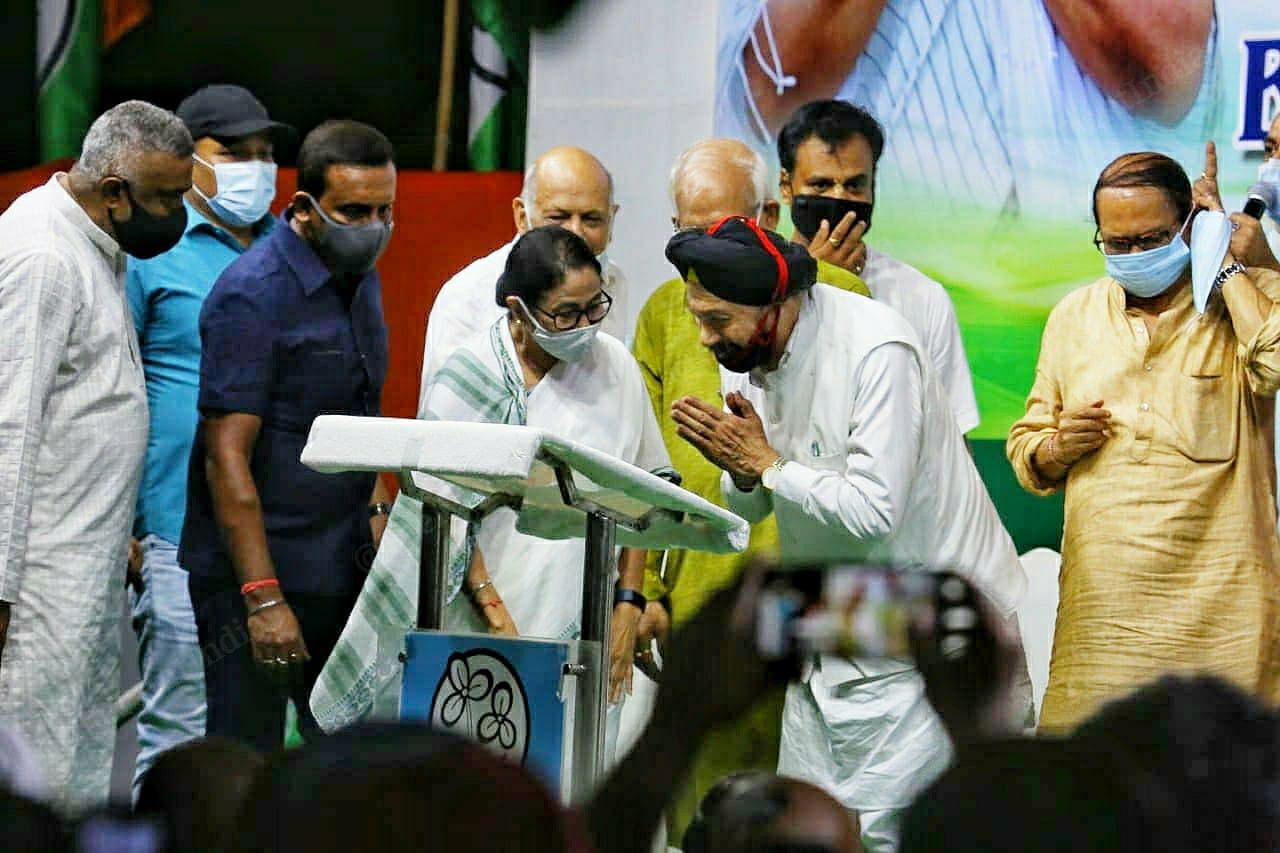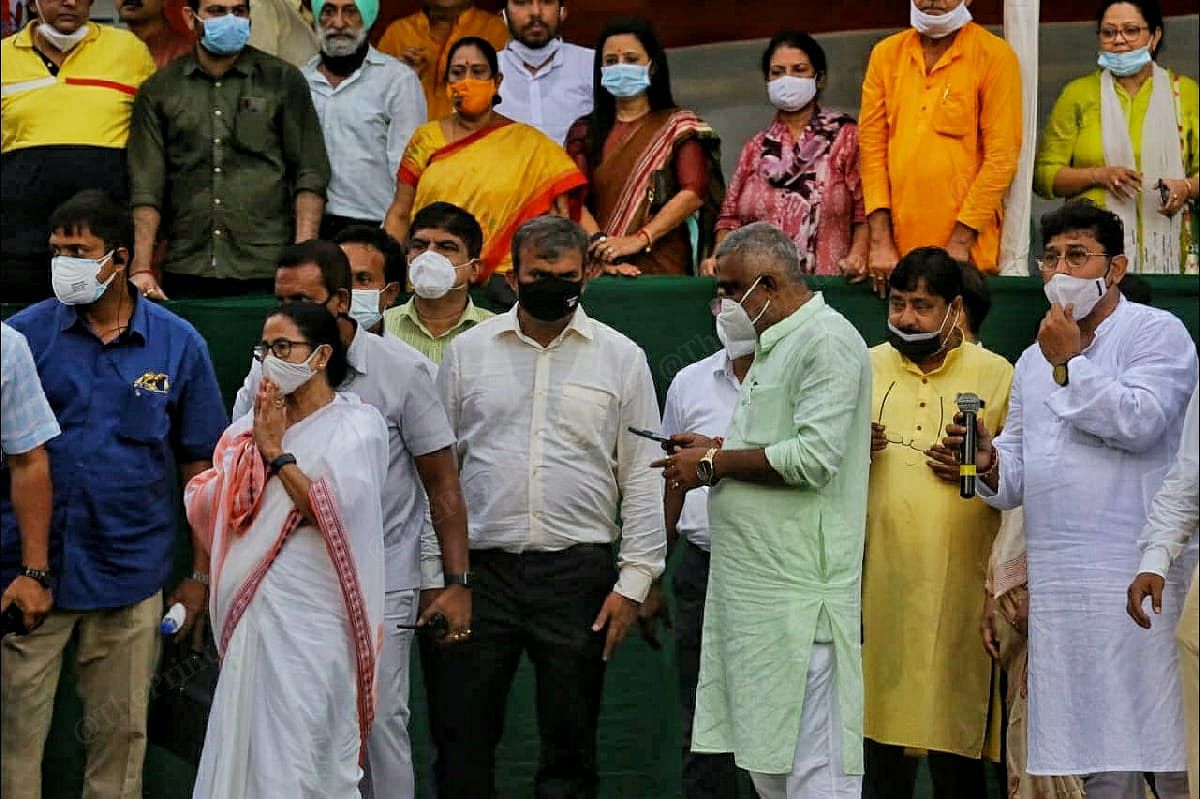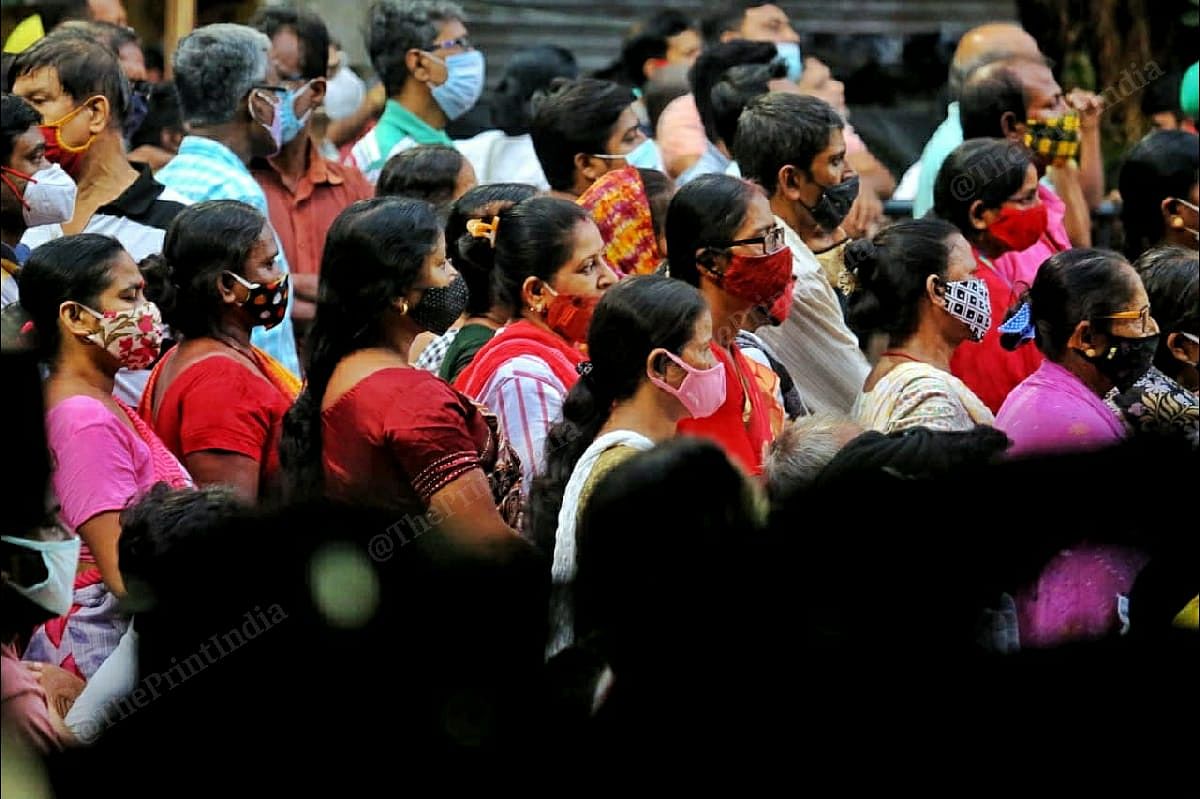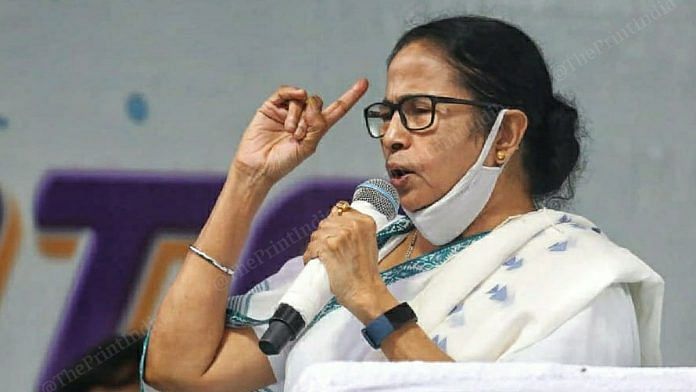Kolkata: A large crowd gathers to hear West Bengal Chief Minister Mamata Banerjee speak at Shakespeare Sarani here on a balmy Saturday evening, five days before voting takes place in the by-election for the Bhabanipur seat.
Sikhs make up a major part of this crowd, and after taking the dais a little after 5 pm, Banerjee sees former Union minister and Samajwadi Party leader Balwant Singh Ramoowalia, currently an MLC in Uttar Pradesh, sitting in the crowd.
Ramoowalia had been invited by the Punjabi community to the city to witness Banerjee’s campaign. At the public meeting, she invites him onto the stage and asks him to sit on the dais.
This is not merely a symbolic gesture. Bhabanipur is home to a significant proportion of the Punjabi population in Kolkata, a fact that Banerjee is conscious of.
In her 30-minute address at Shakespeare Sarani, she makes it a point to mention the ongoing farmers’ protests at Delhi’s borders, and also demands that the Narendra Modi government’s contentious farm laws are withdrawn.
Soon after, she thunders the Sikh war cry “Jo bole so nihaal” to resounding applause from the cheering crowd.
But Bhabanipur is not just about Punjabis; Mamata Banerjee refers to it as a “mini-India”, because it is a melting pot of cultures including Bengali, Gujarati, Marwari, Jain, and Muslim.
Thus, it’s no surprise that apart from Ramoowalia, representatives from the Marwari, Jain and Christian communities are also called to the stage in Saturday’s meeting.

Also read: Mamata talked of farm protest, didn’t observe gurdwara sanctity: Hardeep Puri in Kolkata campaign
Different strokes
In the past week, Banerjee has held a rigorous poll campaign in Bhabanipur, holding one, or at times two, public and street-corner meetings every day.
While starting and ending addresses, she greets all the communities in their languages, and talks about religious tolerance and inclusivity, but also brings in community-specific religious references depending on the locality.
For instance, she greets the Punjabi-Sikh community with ‘Sat Sri Akal’, visits gurudwaras and refers to the farmers’ protest, Guru Nanak and Guru Gobind Singh.
In predominantly Bengali-Hindu localities, she makes it a point to quote from poems of Rabindranath Tagore, recite Bangla hymns, and greet voters with ‘Joy Durga’ and ‘Joy Kali’.
At one point Saturday, addressing a street-corner meeting at Chakraberia which has a sizeable Hindu population, Banerjee talked about how BJP-ruled state Tripura has imposed Section 144 (which prevents gatherings of four or more people) to prevent Trinamool Congress from holding rallies. She mentions this in other public meetings too.
“But I want to know if people will be allowed to celebrate Durga Puja and Kali Puja,” she says.

In localities dominated by Muslims, she consciously uses Urdu phrases like ‘Allah meherbaan (God is kind)’, ‘Inshallah (God willing)’ and ‘kafir (non-believer)’. She has also used couplets in her speeches such as Urdu poet Allama Iqbal’s famous sher, ‘Khudi ko kar buland itna’, as well as Bismil Azimabadi’s poem ‘Sarfaroshi ki Tamanna’ while addressing public meetings in localities like Kidderpore.
In such localities, Banerjee’s tone and tenor is distinctly aggressive. In Kidderpore’s Ekbalpore area on 22 September, the CM had said as long as she is around, the Citizenship (Amendment) Act and the National Register of Citizens cannot be implemented in West Bengal, and that the community should trust her and vote for her if it wants her to fight against CAA-NRC.
But in Hindu-dominated localities, there is no mention of CAA and NRC.
It was in Ekbalpore that she first said that she will not let BJP “Talibanise” Bengal. Since then, she has repeated this statement in other public meetings.

Also read: BJP’s present politics different from what Syama Prasad espoused, Jana Sangh founder’s nephew says
BJP accuses Mamata of playing divisive politics
BJP leaders say Mamata Banerjee is indulging in divisive politics with her changing speeches. The party’s Priyanka Tibrewal is Mamata’s key opponent in Bhabanipur.
“She is playing divisive politics … Her aggressive tenor is an attempt to polarise votes from one community. Her tone changes in Hindu-dominated areas,” claims Sukanto Mazumdar, newly appointed president of the party’s West Bengal unit, in conversation with ThePrint.
However, leaders of Banerjee’s Trinamool Congress deny the charge.
“The CM has visited all places of worship in Bhabanipur since campaigning started. She has gone to Shitla mandir, Jain temple and Sola Ana mosque. She has been talking of religious inclusivity, how she treats all religions as equal. What is wrong in greeting people in their language?” asks West Bengal Transport Minister Firhad Hakim, also speaking to ThePrint.
Hakim, who lives in Bhabanipur and is a trusted lieutenant of Banerjee, further notes that she has also been speaking about the various welfare measures that her government has implemented.
“The Trinamool government has helped all sections of the population. Our welfare measures have reached all — poor, women, girl child… And because of that we are confident of getting 80 per cent of the total votes in Bhabanipur,” he claims.
Also read: In Mamata bypoll seat, Gujaratis & Marwaris are ‘BJP backers’ but TMC has history on its side



